It is very common for some guitar players, especially beginners, to have a distorted view of some aspects of guitar playing. You most probably heard some of these or were even convinced that they are true. They’re not. None of them is true. And you need to know that some of these guitar myths may even hold your progress.
So without further ado, here are 25 guitar myths everyone believes in, but are pure nonsense.
Table of Contents
25 Guitar Myths
I invite you to comment (at the end of the post) on which ones you have already heard about and if there are any guitar myths that you heard that I have not listed here.
1. Learning the Guitar Takes Too Long
Even though mastering the guitar takes a lot of time, you can learn your first song in your first day of playing the guitar. After that, it all depends on where you want to go, how you want to learn, with whom you learn, and the level of your dedication.
As I said before, you can learn your first song in just a few hours. If this is your end goal, learning guitar is very fast. If your goal is to be a professional guitar player, you will have to put in the effort and dedication. Learning the guitar can take a long time, but learning the guitar the right way can save you years.

2. Playing Guitar Requires Great Talent
This is a very common thought among some guitar players. Especially when they look up to their guitar idols. It seems like these guys are a million miles ahead of us.
The truth is that no one is born knowing to play the guitar. To get to that level, they had to put in years of practicing many hours per day. They put in the effort, and now they can enjoy their achievements. I promise you that they still practice daily. Music talent is a real thing, but the real talent is dedication.
3. Playing Guitar Requires A Lot of Expensive Equipment
This is one of the oldest guitar myths, and one of the ones that are very hard to fight. Equipment does not make a good guitar player. If you think it does, exorcize this from your mind as soon as possible. Of course, there is some level of equipment that is required to make any type of progress. For example: A guitar with bad tuners that won’t stay in tune or one that its knobs are making more noise than the guitar itself. There is equipment that can hold your progress, but you can be an excellent musician with basic, inexpensive instruments.
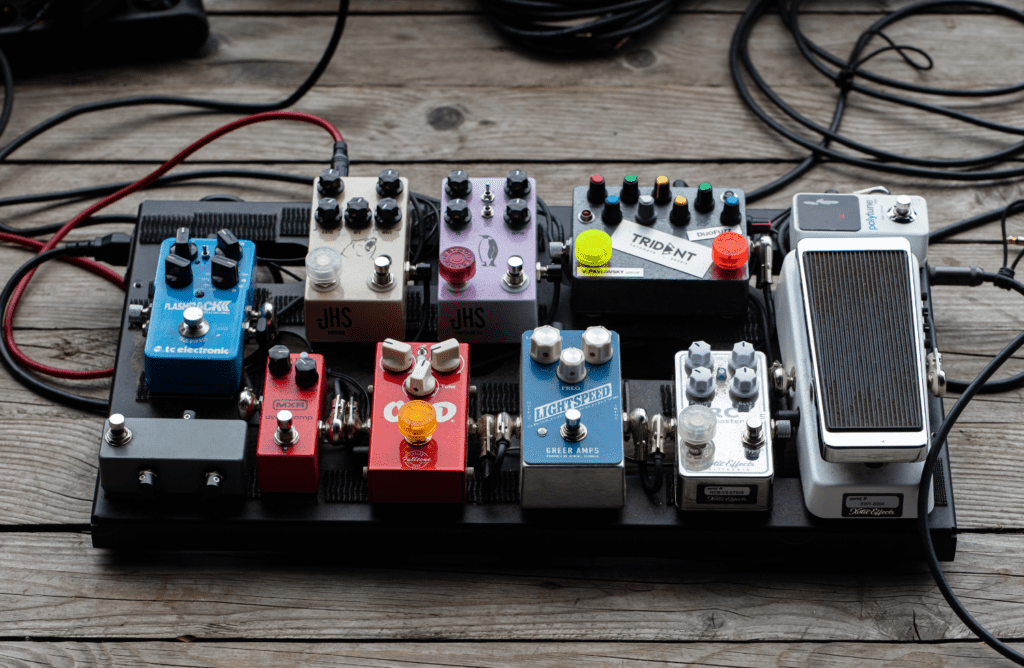
4. Playing Alone at Home is Enough
Even though there is nothing wrong with playing alone at home, there is nothing that will skyrocket your learning like playing with others. It’s true that you can be an excellent “room musician” – like so many others – and be happy that way. But the truth is that there is a unanimous thought among all musicians, and it is: It is great to be on stage playing for an audience, and if accompanied by a good band, even better.
5. Ear Training is Not Important, Guitar Tabs are Enough
If you intend to know how to improvise, follow artists, and compose, among so many other things, and you think like this – Sorry, my friend! You are completely wrong. With this thought, you are a slave to tablature. Without it, you will hardly perform well. Don’t get me wrong – reading guitar tabs is not a bad thing at all; it’s very useful. But it’s only a means of communication between guitar players, not a tool for creating and composing new music.
Tablatures are great allies in learning and help a lot to get the songs we love out. But developing the ear is a must for every guitar player.
6. All Cables Are The Same
Well, no. But you don’t always need a very good cable. If you just started, you might want to save some money, and buy a simple one, favoring your new guitar and amp over the cable. If you’re starting to get serious about playing guitar, and especially if you start recording at home (no matter whether you’re recording electric guitar or acoustic) – you might want to invest some in a good quality cable.
In a way, a guitar cable is a filter you run your guitar through. And as such, it’s a real part of your tone chase. This is affected by its length, thickness, and conductivity (material, quality of soldering, etc.). There’s no reason to use a 100ft long cable in your bedroom.
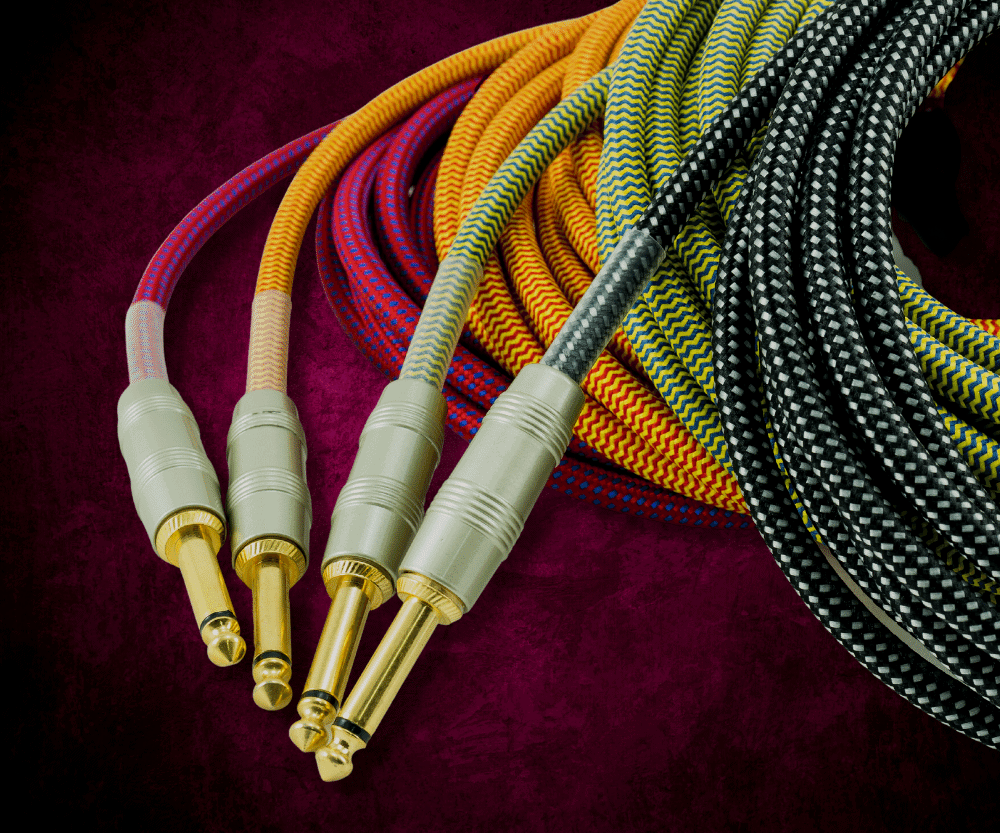
7. A Good Guitar Player is a Fast Guitar Player
Don’t make the mistake of thinking this way. You can be a great guitar player without being a shredder. If you want to be one, okay, focus on some guitar speed exercises, but speed alone won’t take you far. Being a good guitar player is a mix of a lot of qualities.
8. Thick Strings Sound Better
This is one of these guitar myths I hear once a week from a new guitar student who just bought a set of 13s for their electric guitar because they think thicker strings will make their sound thicker, too. It’s not just not true, it’s the exact opposite. Thick strings will require more force to vibrate, meaning your sustain will suffer, as well as the volume and the resolution of your tone. This results in a dead-sounding guitar, which is a lot harder to play (and requires a new setup for thicker strings). I won’t say there’s no room for experimentation or that you won’t like the sound of thicker strings; just keep your expectations realistic.
Rick Beato made an interesting test about different strings gauge that you might find very useful.
9. The Guitar Pick I Choose Doesn’t Affect My Tone
Ummm.. It does, and the difference is dramatic. There are 100s of different materials used for guitar picks, different gauges, tip slopes, and shapes. If you want to learn more about it, head over to the complete guide for guitar picks.
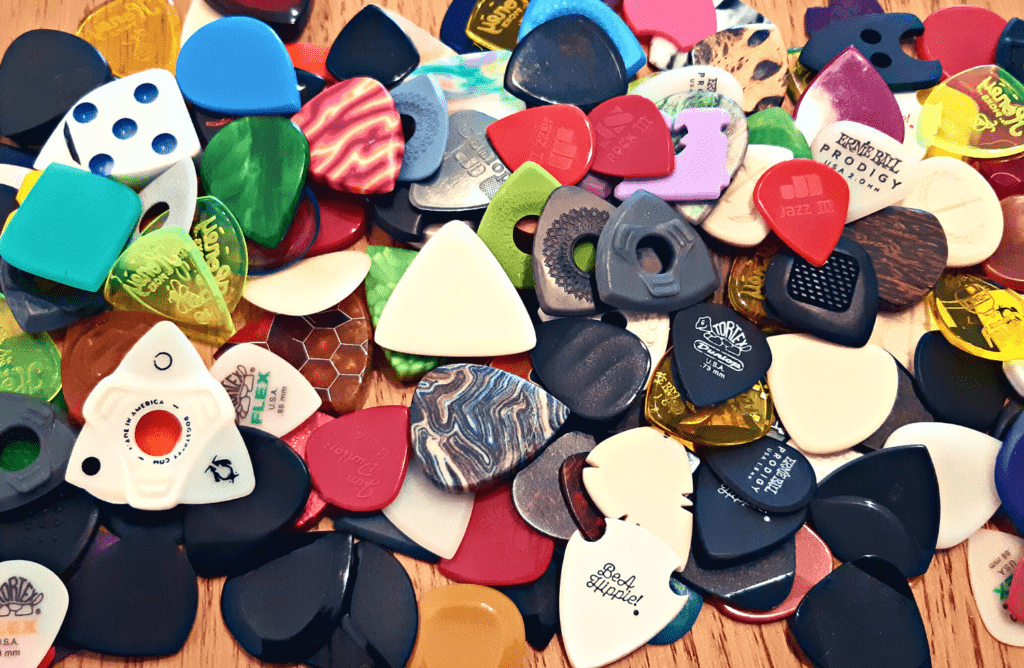
10. Every Pedal Without True Bypass Is Trash
For the next guitar myth, I want to tackle a sensitive subject. Most players will take a true bypass pedal over a buffered (non-true bypass) in a heartbeat. But why? Have you ever asked yourself why you feel that way? “The purity of the signal” is something I hear from a lot of players, but why would you care about it so much, and two seconds later run your “pure signal” through a distortion? It literally ‘distorts’ your sound. Now that I got this off my chest, we can move on.
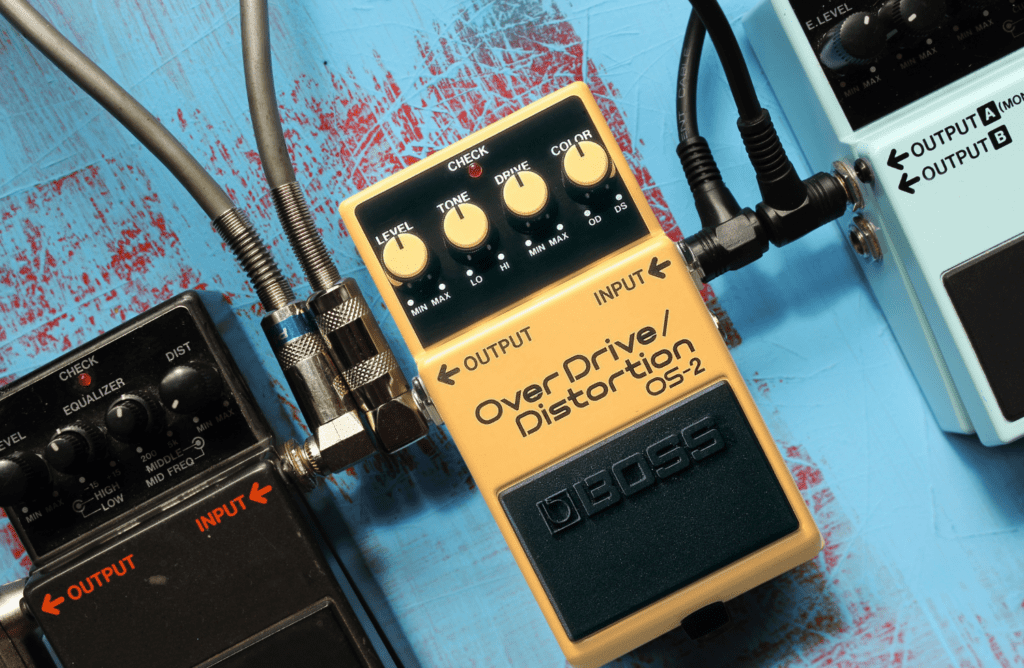
A buffered pedal (almost) won’t change the way your guitar sounds; the buffers in it will lower its volume a bit, though. If you have 4-5 pedals, you’re expected to lose about 2-3 dB. But with 15, you’ll start losing a lot of volume. To completely remedy that situation, you can use a boost or an EQ pedal and just raise the volume back to the way it should be. Problem solved.
It’s true that you lose some low and high end too, but it’s mostly too low or high for most PA systems to play or for people to notice.
If you want to read more about it, I recommend this article by one of the godfathers of DIY pedals, Jack Orman. It’s a bit technical, though.
11. Analog Always Trumps Digital / Tube is Always Better Than Solid State
Guitar players are known for preferring old things over new ones. I’m not really sure why, but some players will pay extra for a new guitar that just looks old. Sorry, “reliced”.
When it comes to the whole digital vs analog or tube vs SSD, this may have been true in the 90s or the very early 00s, but not anymore. I want to take this one step further and say that modeling is just as good as the original it’s based on. Back in the 90s, modeling wasn’t as good as it is today. Today, no one, and I repeat – no one can tell the difference between a properly modeled preset and the original amp it’s based on.
12. Tonewoods Make All The Difference
Even though tonewoods definitely shape the sound of a guitar to some extent, it has a lot more impact on an acoustic guitar’s tone than on electric’s. I don’t say it has no impact on electrics – but at some point, it got to a ridiculous level. A fretboard tonewood, for example, will affect the way you play a lot more than how it will directly affect the tone.
The Boaz One, for example, is an electric guitar made of plastic, and even though I didn’t like it that much, it wasn’t because it sounded bad. In fact, it sounded pretty great.
13. A Good Guitar Must Be Made In The USA
It may have been true at some point a long time ago, but today, there are great Mexican, Japanese, Korean, and even Chinese guitars. Everything from every Epiphone you played since the mid-00s to the Squire’s Classic Vibe range and 100s of different guitar models made in Korea and Japan. Don’t judge a guitar because of the country it was made in.
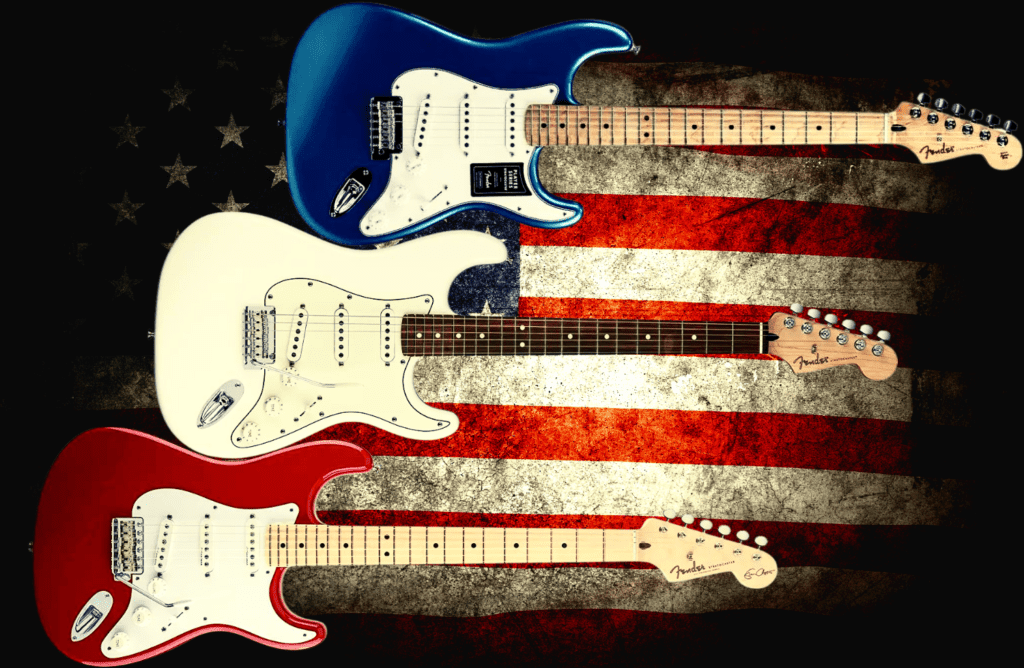
14. A Guitar Must Be Expensive to Be Good
As an extension to the previous point, Chinese guitars are usually a lot cheaper than American ones, but I don’t think anybody can say that Epiphone or Fender Squire don’t have some great guitars.
15. Chinese Guitars Are Awful
This was true up until the early 00s, but the level of craftsmanship was drastically improved in Chinese factories since then. Today, most of the guitars in stores are made in China, and even though they are usually not the best, they are more than decent. I don’t think anybody can say that Epiphone and Fender Squire don’t have some great guitars.
16. Technique Is Only For Shredders
No. Every guitar player should invest time in improving their technique. The technique helps with playing fluently, and with producing clean notes. It is crucial in order to play faster, but most of it revolves around playing cleanly and not sloppy.

17. I Don’t Need to Know Harmony, I Want to be a Solo Guitarist
Here is another big guitar myth that is not just wrong, but will harm the way you think about your role in any band. Have you ever heard one of your all-time favorite guitar solos on an isolated channel? If yes, what did you think? If not, maybe there’s a good reason for that.
First, let’s understand what harmony is. In a few words, harmony is the combination of simultaneous sounds. If you want your solo to be impactful, it has to be harmonized correctly with chords or lines that will carry the emotions you want it to carry. And before you say anything, love is not the only emotion in music. Wanting to kill everyone is an emotion, too. Both can be harmonized.
Understanding harmony will give you endless possibilities. It is essential for you to understand the existing relationships between chords, intervals, and scales.
18. Music Theory is Not Important and is Boring
Can you be a good musician without knowing music theory? Maybe. But a complete musician? certainly not. Music theory is nothing more than the systematic/organized study of music. Through it, you have the opportunity to know how things work.
The first step to getting rid of this thought is to just start studying music theory, and when you realize how important it is, you will surely see that there is nothing boring about it. A good introduction to guitar theory is guitar scales. Give it a shot, and you’ll see how much impact it has on your playing.
19. I Need to Sound Perfect
It’s okay that you want to play a solo perfectly, with the best tone and the best performance. Who doesn’t? The fact is that perfectionism often prevents us from evolving, getting out of our comfort zone, and even having fun. A non-perfect song that you released is a million times better than a perfect song you kept in the drawer.
20. I Am Too Old to Learn Guitar
Another harmful guitar myth. It is never too late to do anything that your mind and body allow. There are many successful musicians who started “late” (attention to the quotation marks) and achieved worldwide attention. But the number of musicians who have had the same success – musically speaking – and are not in the media, is surely hundreds and hundreds of times greater.
So if this is your dream and you can afford it, don’t make the mistake of thinking that it is too late. Start as soon as possible and be happy!

21. I Don’t Have Time to Dedicate to Learning Guitar
This is for sure the main reason that prevents people from learning and evolving on the guitar. As long as what you are doing is properly structured, you can get the most out of short practices. You won’t improve as fast as if you had more time, but your improvement will be consistent and rewarding.
22. Success is Being a Famous Rock Star
It’s OK to think like this if this is your goal in life. But for many, success is just playing the guitar well. For others, knowing how to play a few dozen songs is already a success.
This thinking can also be detrimental to your journey. Focus on being your best today, try to learn something new every day, and understand that this is already a success. These are the means to an end.
23. Every Song Needs a Guitar Solo
Controversy! A big mistake some musicians make, especially guitarists (ok, some vocalists too =0) is wanting to stand out in the music. Keep one thing in mind: rhythm, harmony, solos, lyrics, and timbres, among other things, are the “pieces” that make up the music. The main goal is the music. If it asks for a solo, then put in a solo. If it asks for silence, don’t put anything.
Songs are songs, with a solo or not. Solos in songs are beautiful, but they are not rules. Use them with moderation
24. I am the Most Important Musician In the Band
If you think like this, automatically, you are no longer part of the band. As in the item above, the music is the most important, and it is amazing how it brings in a little bit of each member.
No matter how much you are the leader, or have more musical or composition skills, you are part of something and should not have this thought.
via GIPHY
25. I Need to Practice 10 Hours a Day to be Good
This is also not true. It is clear that if you can dedicate 10 hours a day you will accelerate your learning. Do it! Just be careful with injuries.
To be good, you need to learn in the right way and dedicate as much as you can within your time limits. Study often, and the results will come.
Finishing Thoughts
I hope you enjoyed this article and learned something new. If you have any guitar myths I didn’t include, or if you think that some of these are real, tell me about it in the comments. See you next time!
I was so sure that thicker strings sound better than thinner ones. I need to give a shot to a thinner set. How would you set up a guitar after changing string gauge?
Basically, you need to raise the action a bit to compensate for the strings’ ease of movement (play between the truss rod to the action). After that, re-intonate and you should be good to go.
For more information you can read here a guide for setting up your guitar.
you made a good point that there’s no point in protecting the purity of the signal and then distort it